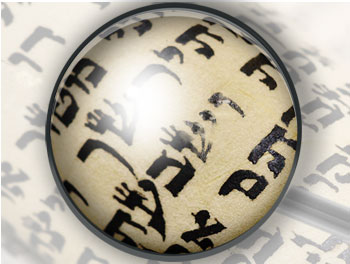When I was 23 years-old, I packed everything up and headed south towards Los Angeles to begin my program towards an MAED and MBA at the-then University of Judaism (now American Jewish University). How I, with my Bay Area Reform Jewish background, wound up choosing the UJ is a (great) story in its own right, but suffice it to say, I made a choice to put myself in an environment where Judaism was going to live very differently than how I was used to or even knew to be possible. Nothing is more emblematic of the culture shift (shock) than this little anecdote that I am reminded of each year at this time…
Like a lot of rabbinic and education students (at that time), I lived on campus and the day began with breakfast in the cafeteria. One my strongest memories from that time is when I got up early for school and, as per normal, headed down the hill for breakfast just to find the cafeteria empty of students. I remember asking a (non-Jewish) cafeteria employee what was going on, where was everybody? Oh, I was informed, there is no school today. Why is that? It is Shemini Atzeret.
“It is Shemini Atzeret.” – that was the first time I had ever heard those words before, let alone, knew them to be the name of a Jewish Holiday. And, so, back to bed (and not to shul), I went.
Whenever, I write a blog post about Jewish Holiday observance, or Jewish observance at all; whenever I engage in any conversation with or about adult education, this is the first thing that pops into my mind. I went half my life not even knowing the names of all the Jewish Holidays; who am I to judge the background knowledge or experiences of other Jews? I know how it feels not to know things you assume others do – or worse, to not know things you assume others assume you do know – and it doesn’t feel great.
Here’s another example from that time. We used to shul-hop all the time to soak up different experiences. We wound up in a large Conservative synagogue in the Valley and, as is common for newcomers, we are given honours. I am given the honour of hagbah which, like Shemini Atzeret, was a word I learned for the first time at that moment. I did not know what it meant (to lift and display the Torah after reading) or that it is done in any particular way. Which is why, in the moment, I flubbed it and needed some emergency assistance to prevent a fast-able situation. And that is why, almost thirty years later, I have not and will not do hagbah.
I have deep empathy for the many adults whose children become the catalyst for Jewish journeys. I have deep empathy for the many adults who feel uncomfortable in synagogue. No one likes to feel foolish and no one invites anxiety. For all the people who continue to live within the exact same faith tradition they were raised, there are many people who do not. And it is explicitly to those folk that I reach out to through these posts and through opportunities for adult learning…
My first Simchat Torah that year was also one of my first “a-ha moments”. Growing up, Simchat Torah was essentially Jewish Halloween. At my little Reform synagogue (and I am not trying to generalize my experience in the 80s at one synagogue to all of “Reform Judaism”), we literally would go outside and collect candy. I have no memory of us even reading the Torah, let alone dancing with it. So, when I attended Simchat Torah services that first fall, I did not know how to process what I was seeing. It was a room full of adults, including very esteemed professors and rabbis, drinking and dancing with the Torah – there likely were children in the room, but they were not the focal point. The focus was on joy, adult Jewish joy. Who knew?
That is what I am aiming for in these posts…and in my professional life. Give yourself permission to step out from behind the children and seize the joy of Jewish living. Don’t let not-knowing or not-knowing-how steal your joy – we would never let our children get away with being afraid to make a mistake as an excuse for trying new things, let’s not let ourselves as well. What is Shemini Atzeret? Find out on Thursday. Do you think dancing with the Torah is only for children or those observant or knowledgable families? Show up on Thursday night and Friday morning and seize the spotlight.
Yes, it is easier said than done. And yes, it is a little uncomfortable that this plea coincides with the Hebrew anniversary of “October 7th”. And, yet, we are taught that in Ecclesiastes 3:4 that there is…
A time for weeping and a time for laughing,
A time for wailing and a time for dancing;

